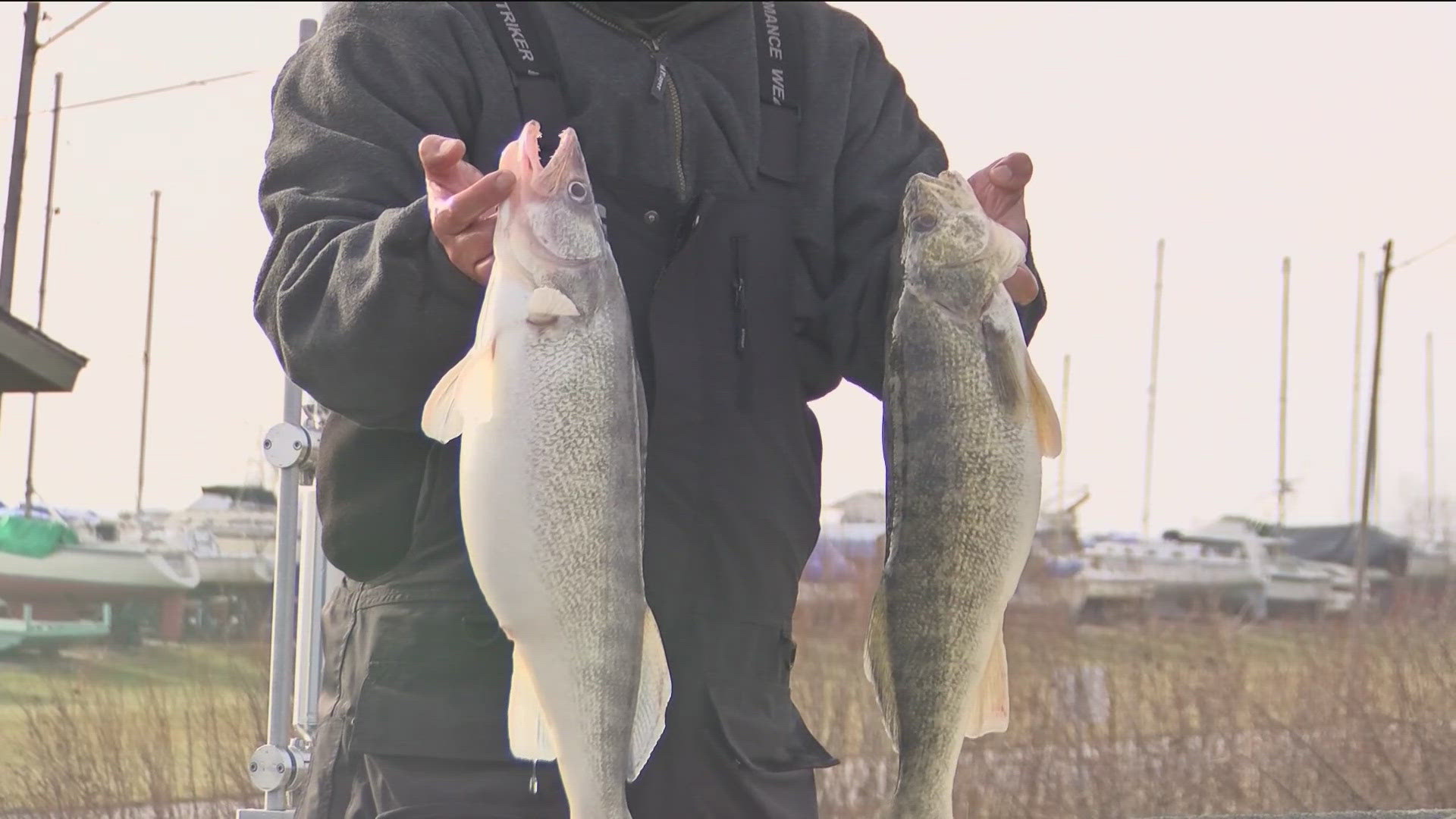TOLEDO, Ohio — It's been nearly ten years since the Toledo Water Crisis.
Even though the city hasn't had the same problem at the tap since, some people said they've now become more cautious with what they consume from the lake.
"We'll go fishing," said fisherman Rick Suiter. "We don't keep anything just because stories you've heard about the water runoff, you know stuff discharging the river, catfish being bottom feeders, we don't keep anything."
Suiter goes fishing with his great grandson every week but due to safety concerns, they don't eat the fish they catch.
RELATED: How much progress has been made in Lake Erie? Advocate, expert weigh in | Protecting our Water
Other fisherman have said they'll eat them depending on the type of fish they catch.
"American Carp we've eaten before and of course your walleye, and white bass and things like that, catfish, it's what we're targeting this weekend - catfish," said fisherman Keith Stiles.
According to Travis Hartman, the program administrator for the Wildlife Division of Ohio Department of Natural Resources Lake Erie Fisheries, some fish are safe to eat today.
"Something like walleye or perch that are really popular on Lake Erie, and of course our reservoirs, Saugeye and Walleye they're a predator, they're eating other fish," said Hartman. "They're low risk, generally speaking, when it comes to thinking about how contaminants work in the environment."
Hartman also said bottom feeders, such as catfish and carp, are the ones to be more cautious with.
"Bottom feeders come into contact with more sediments and if there are any chemicals or contaminants in those sediments, you know the bottom feeders are in contact with them," Hartman explained. "They’re interacting with them, they’re the ones that potentially maintain those contaminants if they’re in sediments that are in bad shape."
As for regularity in how often you should be consuming these fish, according to an Ohio Sport Fish Consumption Advisory released by the Ohio Department of Health, most Ohio sport fish are safe to eat with one meal per week.
WATCH more on WTOL:

